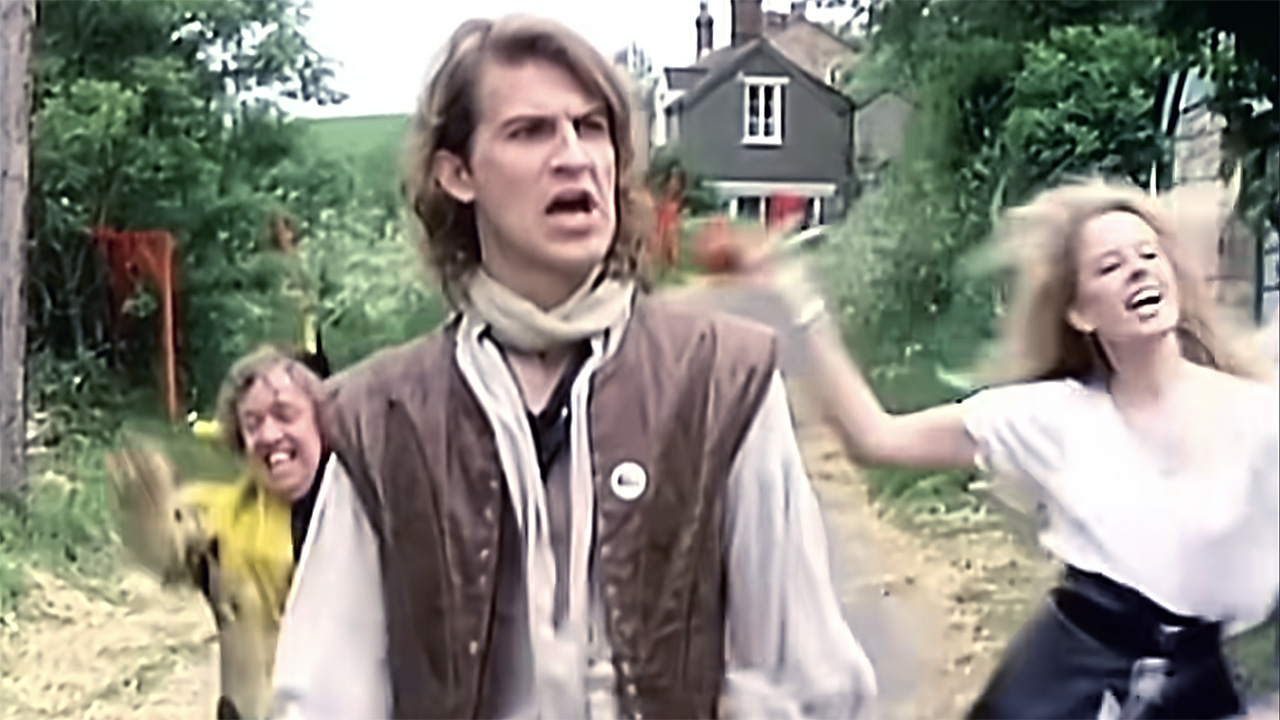No drummer! No time! No songs! How Marillion made Fugazi
The story of how Marillion made their second album, 1984's aptly titled Fugazi
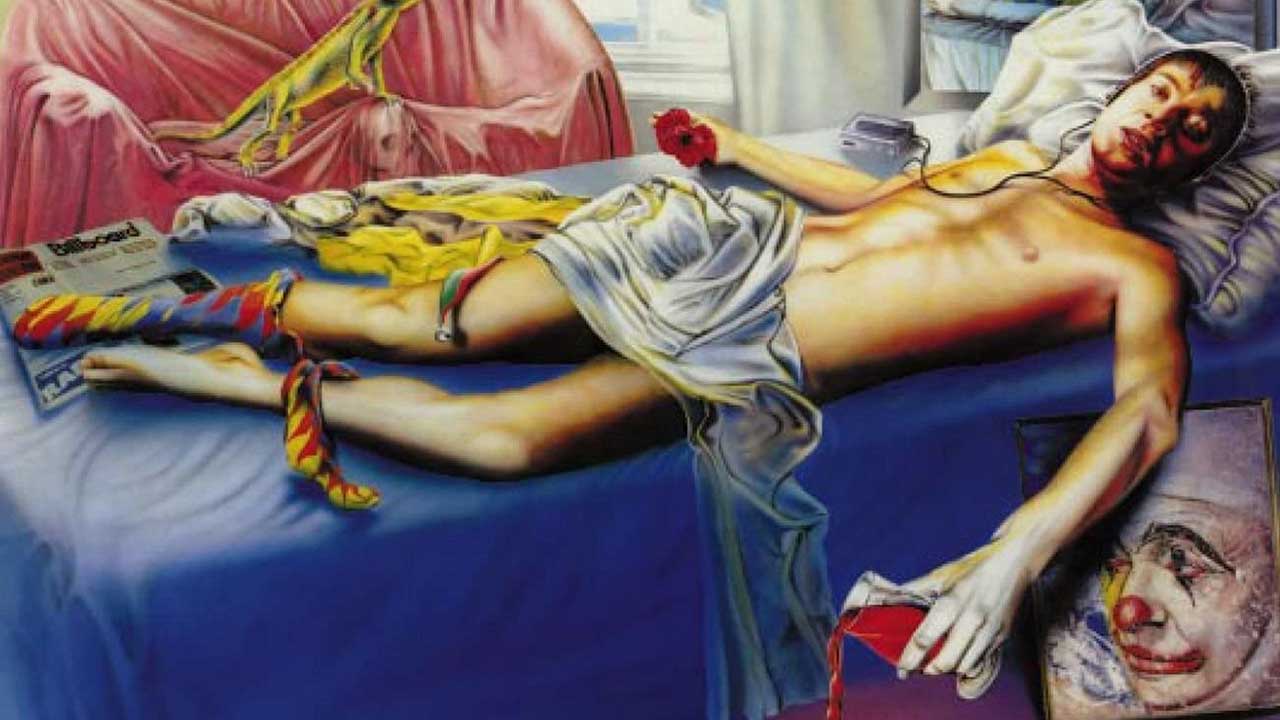
It was when the guy burst into the studio holding a machete that Mark Kelly knew things had got silly.
Marillion’s keyboard player was holed up in London’s Odyssey Studios, racing against the clock to get his band’s second album, Fugazi, finished. Kelly, producer Nick Tauber and engineer Simon Hanhart had been working through the night in an attempt to mix the last few songs, but they still weren’t quite there. The only snag was that the studio had been booked by another producer, who was currently waiting outside and becoming increasingly annoyed.
“He was there to record a session with an orchestra,” says Kelly. “Basically, there were 40 people waiting for us to finish.”
The Marillion team were acutely aware that they were biting into someone else’s time. But they were even more aware that their deadline to finish the album was hurtling towards them at an alarming speed, and they needed to get these mixes nailed.
“We basically paid this guy a thousand quid to hold off and give us another few hours,” says Kelly. “And then eventually we ran past that point.”
That’s when the stonewalled producer’s patience finally snapped. He stepped into the studio lounge and announced that he had served in Vietnam, and that he had a machete in his bag and he was willing to use it.
“That was it,” says Kelly, laughing at the memory. “We basically had to go, ‘Right, that’s it, we’re leaving then. Bye.’”
Sign up below to get the latest from Prog, plus exclusive special offers, direct to your inbox!
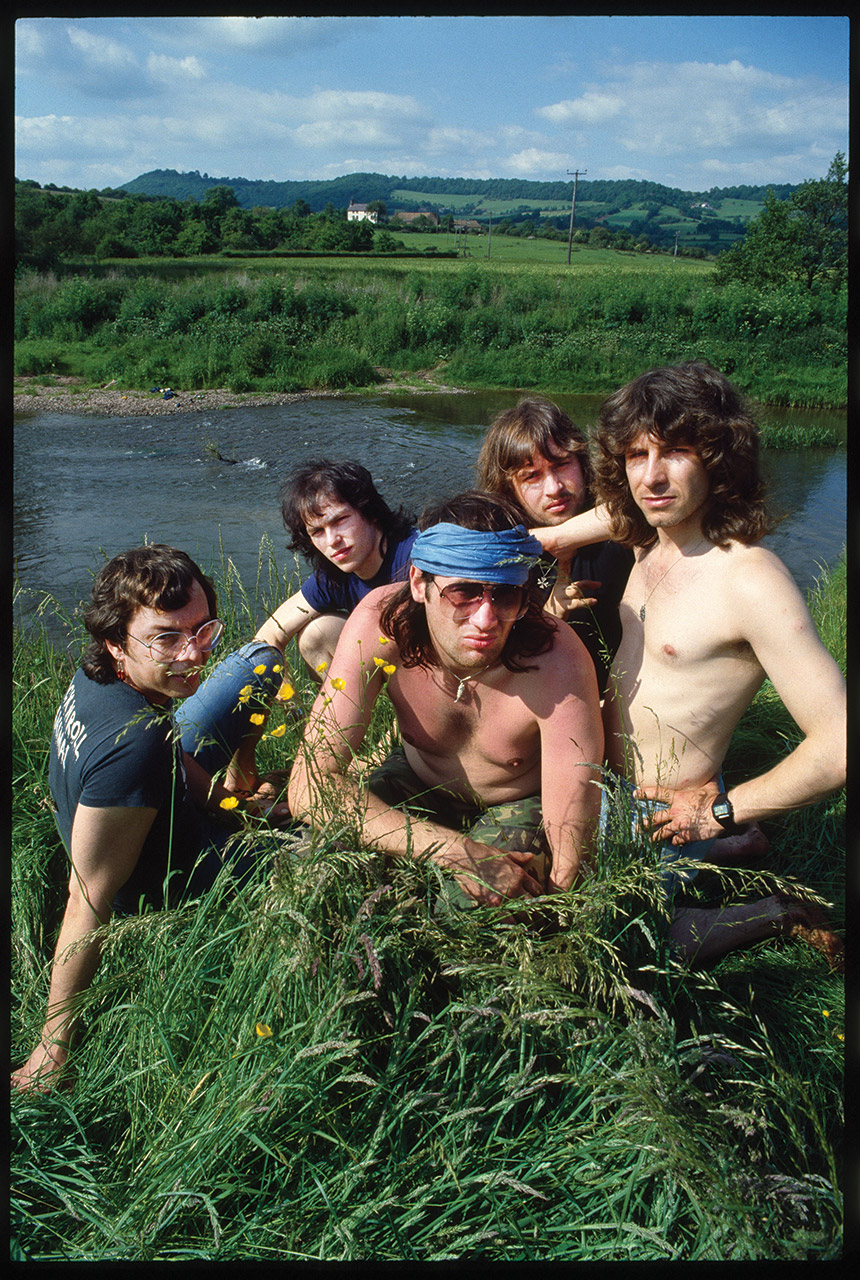
An aggrieved man making threats with a machete pretty much sums up the fraught, wired and occasionally unhinged process of recording Fugazi. A record that cost £120,000 to make and should have anointed Marillion as one of the biggest new British rock bands of the era instead turned out to be a disappointment to the band and their label. Its title couldn’t have been more appropriate: ‘Fugazi’ was US army slang for ‘Fucked Up’.
“It was a strange time,” says Fish, Marillion’s original singer and lyricist. “We were riding on the back of [debut album] Script For A Jester’s Tear, we’d done our first American tour, it was all wonderful. And then we hit Fugazi.”
In the summer of 1983, Marillion had every reason to be confident. Script… had reached No.7 in the UK Albums Chart when was it released that March, turning the Aylesbury band into unlikely pop stars. Its success inevitably sparked off a surge of interest in like-minded bands.
“Record companies would go, ‘Bloody hell, that seems successful, let’s sign another band’, so suddenly all the majors are looking for their version of Marillion,” says Kelly of this unlikely prog revival. “Bands like Pendragon and Pallas were getting record deals, where previously they wouldn’t have been able to.”
Marillion weren’t wholly comfortable in the role of figureheads for this ‘neo-prog’ movement. In fairness, many of the other bands felt the same way.
“We didn’t want to be lumped in with the likes of IQ and Pendragon,” says Kelly. “I remember when we played the Marquee once, a couple of IQ were down the front heckling us. They resented the fact we were having success and they weren’t, even though they’d been around longer than us.”
Marillion’s peers weren’t the only ones who wanted to see them brought down a peg or two. The gatekeepers of cool within the British music press were also willing them to fail.
“With the exception of one or two people, there wasn’t a huge amount of love for Marillion in the mainstream press,” says bassist Pete Trewavas. “There was a general feeling of, ‘These guys don’t deserve to be successful in the early 80s.’ They definitely had the knives out for us.”
For all the opprobrium heaped on them from certain quarters, Marillion looked to be in a good position as they readied themselves to work on the follow-up to Script…. There was just one problem: aside from a handful of ideas, they didn’t have any material.
In time-honoured rock’n’roll tradition, Marillion had written the songs that made up their debut album over a period of two or three years. But now the cupboard was bare. “We used up all the material we had on Script… and the Market Square Heroes EP,” says Kelly. “We needed to come up with an album’s worth of material and we pretty much had to start from scratch.”
Not completely from scratch. Fish had been stockpiling ideas for months, and even years. Early versions of the lyrics for songs that would become Jigsaw, Punch & Judy, Emerald Lies and Incubus were all kicking around in various states of completion. “I had a lot more lyrics than there were musical ideas,” the singer says now.
The prospect of writing a new album may have been hanging over their heads, but there was a more pressing matter at hand. Kelly, Trewavas, Fish and guitarist Steve Rothery had fired founding drummer Mick Pointer in April 1983 following a prestigious two-night stand at Hammersmith Odeon at the end of the UK leg of the Script tour, unhappy with his technical abilities. With a series of summer festival dates in the pipeline – not to mention the impending prospect of recording a second album – they needed to find a replacement pronto. Although Marillion’s concept of ‘pronto’ was different to most other people’s definition of the word.
“We were more concerned with getting the right person,” says Trewavas. “We didn’t want a session drummer to record the second album. We wanted somebody who fitted in, musically and socially as well.”
That would be easier said than done. Mark Kelly admits that Marillion were “completely amateurish” in their search for a new drummer.
“Everybody threw names into a hat,” he says. “It was basically people we’d worked with in the past. Fish brought somebody down from Scotland that he knew. I brought along some guy from a band I’d seen in a pub. None of them were up to the job.”
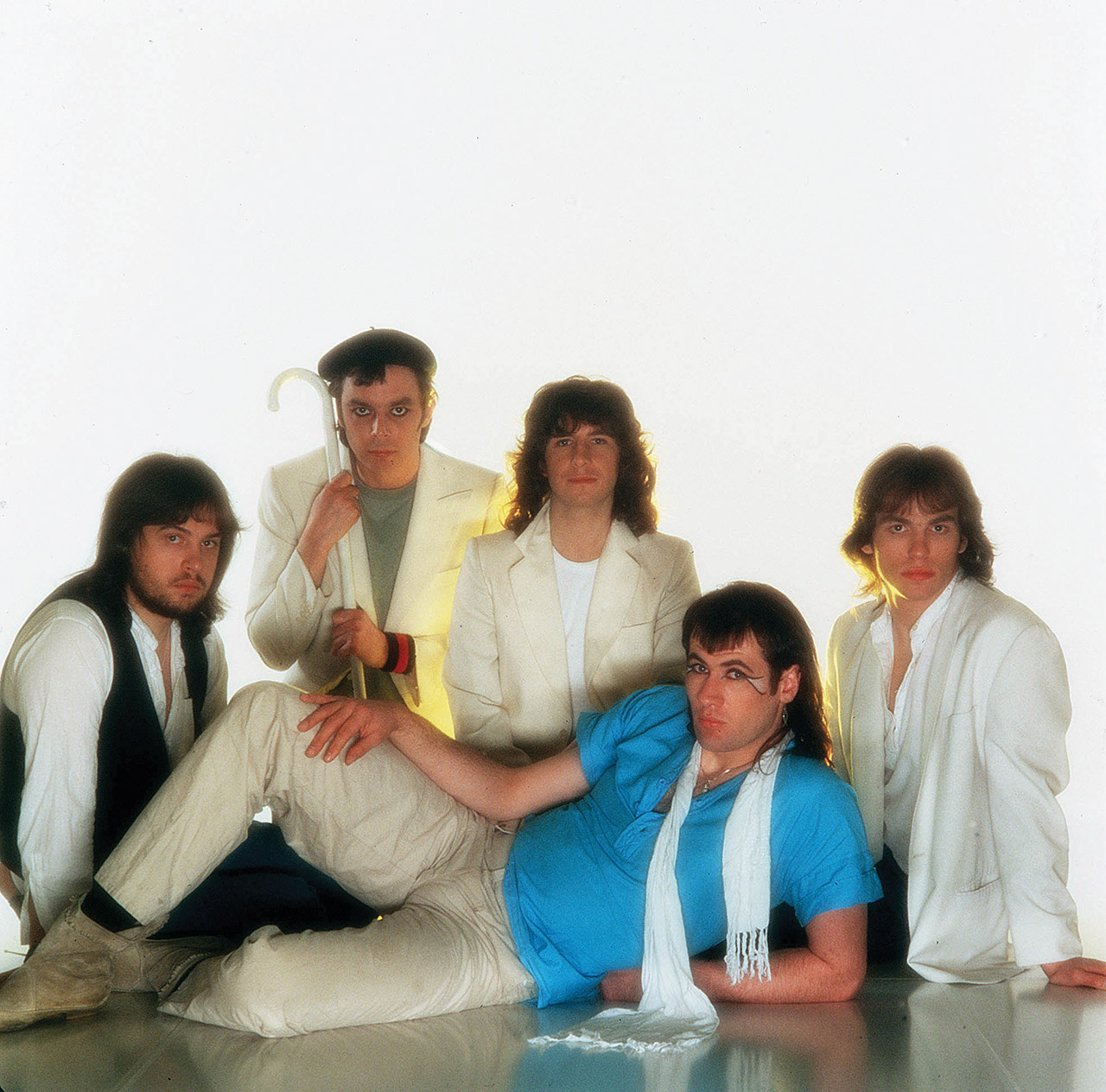
One of the people who offered their services was Woody Woodmansey, former drummer with David Bowie’s Spiders From Mars. “He wanted to come in and audition, but he was definitely too old,” says Kelly. “He was in his mid-30s at the time.”
Instead, a seemingly perfect candidate was right under their noses. Andy Ward was a founder member of Guildford prog magicians Camel and had played on such groundbreaking albums as Mirage and The Snow Goose before his departure in 1981. Fortuitously, Ward had a drumkit set up at Nomis, the west London rehearsal studio also used by Marillion. Introductions were made and the question was asked: did Ward want to become their new drummer? He said yes.
“When we found Andy, we were really excited,” says Trewavas. “We’d all grown up listening to Camel. I used to watch them at [iconic Aylesbury venue] Friars. It was a buzz to get him.”
Ward made his first public appearance with Marillion at their old home-from-home the Marquee on May 12, 1983. Eight days later, they recorded an appearance on influential TV music show The Old Grey Whistle Test, before heading off for a short run of European festival dates. “When Andy came in, he had a saintly glow about him,” says Fish.
With Ward bedded in, the band embarked on their first writing session for the new album. The location was Mountain Studios, a live-in facility owned by ex-Hawkwind bassist Thomas Crimble, located on top of a Welsh mountain. Hippie vibes permeated the air: a stone circle stood nearby, while two women named Sunshine and Nutkin permanently hung around the studio. The band’s label, EMI, figured that the band would emerge two weeks later with enough songs for an album.
“It was in the middle of nowhere,” says Mark Kelly. “We thought it would be a good idea to get away from everything and everybody and just concentrate on the writing. But it was a bit of a miserable place. And there was a drug dealer living in the caravan down the road, so it wasn’t that productive.”
“It was like a fucking busman’s holiday,” says Fish. “I remember doing acid, walking through some spruce woods, and lying in the stone circle listening to Van Morrison, trying to find some guiding light for the lyrics.”
The lack of movement on the song- writing front wasn’t purely down to chemical distractions. Many of the songs that appeared on Script… had been written before Kelly and Trewavas had joined Marillion, while parts of the 18- minute epic Grendel pre-dated even Fish. This was effectively the first time this line-up had all worked together properly.
“We were learning how to write together as a band,” says Trewavas, “so maybe we were taking it a little bit easier than we should have been. But we’d also done the first album, we’d toured a lot and we needed a bit of a break to be honest.”
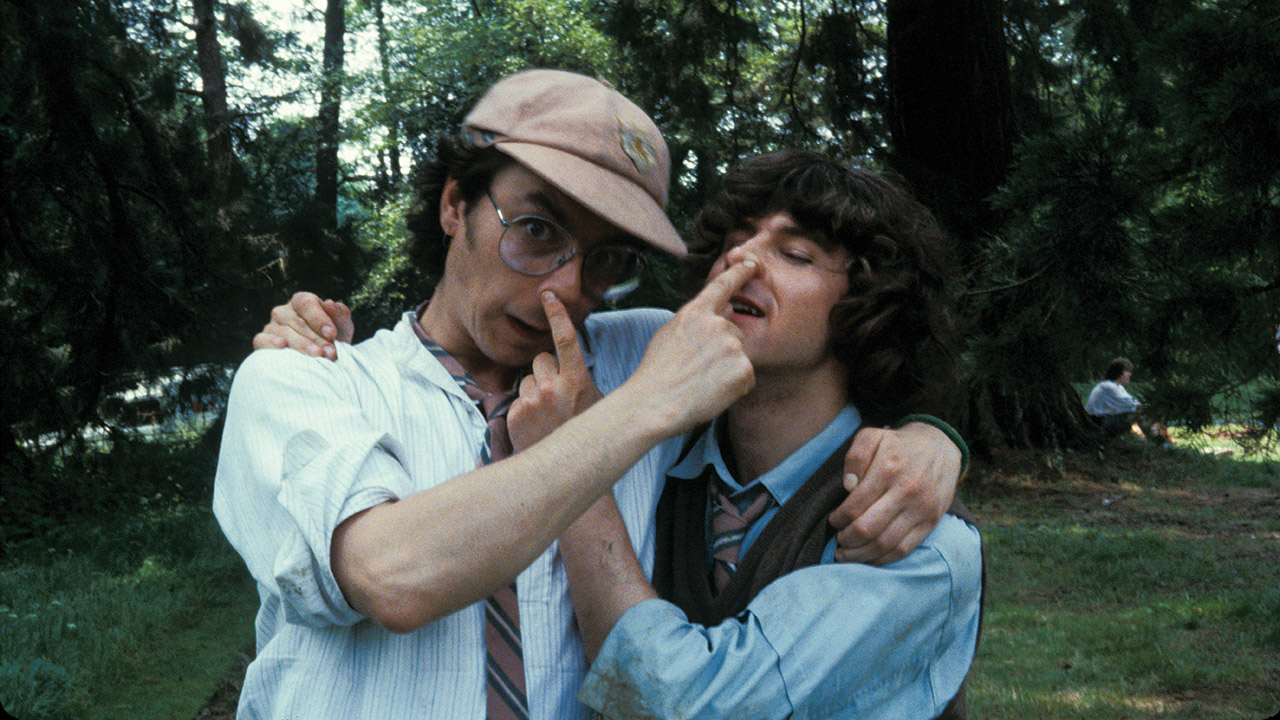
Marillion’s time at Mountain wasn’t a complete busted flush. While they were there, they worked up an early version of Fugazi opener Assassing. Fish had been switched onto what he calls “Middle Eastern rhythms” by his friend, former Van der Graaf Generator frontman Peter Hammill. Inspired, he suggested Marillion incorporate their own version into Assassing.
“In my mind, I was thinking of the Harakim assassins,” he says now. “I wanted to have the feel of the guys in the black cloaks going through the desert with big sharp knives.”
The sound perfectly complemented the song’s lyrical theme. A treatise on the nature of friendship and trust inspired by the firing of a former bandmate, it found Fish simultaneously justifying and crucifying himself for taking on the role of metaphorical assassin. “People think it was about Mick Pointer, but it was about [former Marillion bassist] Diz Minnitt,” he says. “We were really good friends, but I had to do it for the sake of the band. Bang. Bullet to the head.”
Marillion emerged from Mountain after a couple of weeks with relatively little to show for it, but they hardly had time to worry before they were bundled back on the tour bus for yet more festival dates in June and July. These included an appearance at that year’s Glastonbury Festival, where they publicly unveiled Assassing.
“It was great, nothing like it is today,” says Fish of Glastonbury. “We were on pretty early. I remember getting off my tits with [comedian] Rik Mayall after the set.”
Any impending worries about the album were pushed even further to the back of their minds in July, when Marillion embarked on their debut US tour, opening for Todd Rundgren. It was to be eventful on many levels.
“I never fucking met him once,” says Fish. “At one point, we were in the same hotel and I went up to his hotel room to introduce myself. The assistant said, ‘Todd’s seeing friends. Who are you?’ ‘I’m the singer in the support band, actually.’ I sat there for an hour on a fucking couch, waiting. I was, like, ‘Fuck you.’”
There were political shenanigans too. On the day of a show in Toronto – a Marillion stronghold – Rundgren’s manager changed their stage time. “We came on five minutes after the doors opened,” says Fish. “There was basically no one in the venue.”
But the biggest problem came with their new drummer. Everyone in Marillion liked Andy Ward, but what they didn’t know was that following his final tour with Camel, he’d cut his wrists and spent time in hospital as a result. His demons began to resurface on Marillion’s US tour. He started drinking too much, and complained of being homesick. At one stop-off, he began handing out cigarettes to random strangers in a hotel lobby. He even walked offstage midway through one gig.
“The veil was really lifted on the saint,” says Fish of the drummer’s erratic behaviour. “It was, like, ‘Oh my God…’”
Things came to a head in New York. A worse-for-wear Ward effectively had a mini-breakdown, and began crying as the band checked into the hotel. The band’s manager, John Arnison, quietly had the drummer put into a taxi and taken to the airport to fly home to the UK. Marillion’s US tour was over, and so was Andy Ward’s time in the band.
“Andy has since said that he was diagnosed [with] bipolar [disorder], and that had a lot to do with his behaviour at the time,” says Mark Kelly. “But of course, we didn’t know that, and neither did he.”
Whatever the circumstances behind Ward’s departure, Marillion were back at home and back to square one. With an album to write, they needed to recruit a new drummer quickly.
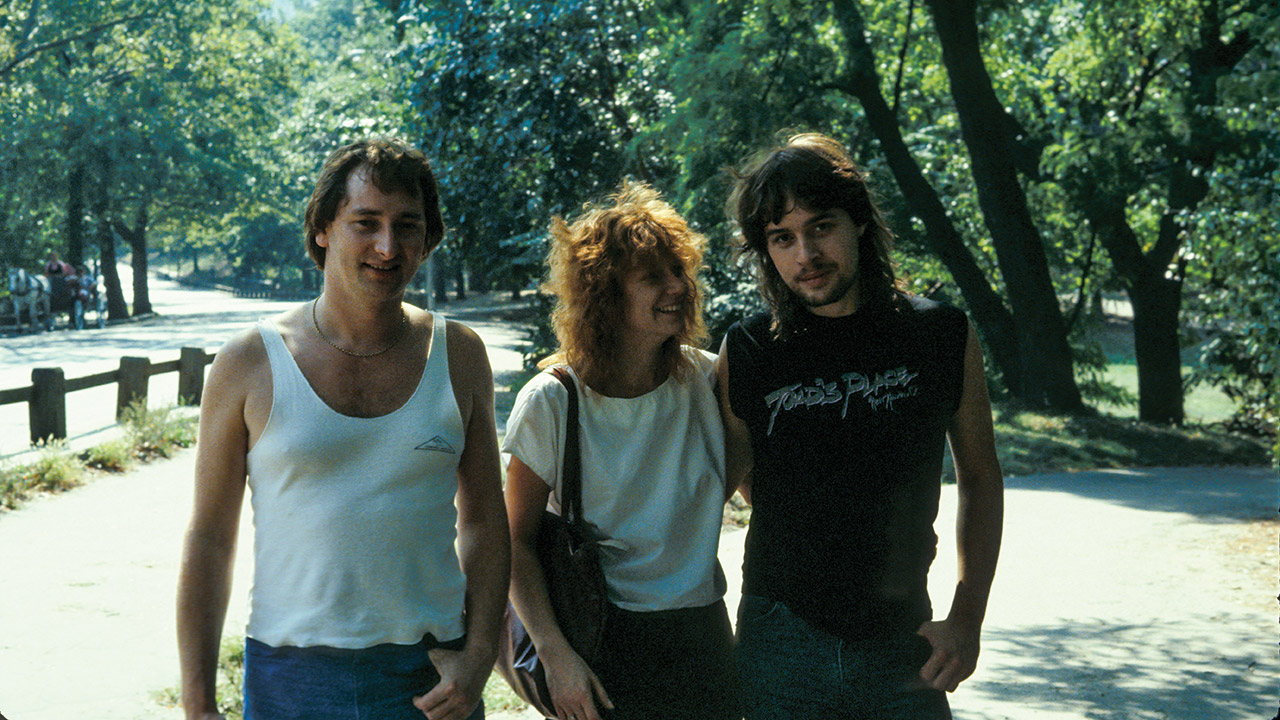
The man they called in was John Marter, formerly of 70s rockers Mr Big. Marter was an old-school drummer with a definite air of been-there-done-that. Marter joined Marillion in time to record a new version of Market Square Heroes and its B-side, Three Boats Down From The Candy, and play a high-profile, second-on-the-bill appearance at August’s Reading Festival. The following month, they flew back out to the US to support Rush during the latter’s five-night stint at New York’s prestigious Radio City Music Hall.
“The Rush guys were great, the New York stage crew were arseholes, and the audience hated us,” says Fish. “As we walked out, we were booed: ‘Fuck off!’”
The singer bit his tongue for the first two or three days, but eventually he could contain himself no longer. Telling the rest of the band to stop playing, he turned to face the boo-boys.
“I said, ‘Listen, Rush won’t be on until eight o’clock, we’re on the stage now. Some people want to hear us play our set. If you don’t want to hear us, fuck off out of the building and go get a beer for 45 minutes, so fuck you.’ I got a round of applause for that.”
It was in New York that John Marter marked his own card. Sitting in a hotel bar with a drink or two inside him, he announced that the band wouldn’t be where they were without Fish. The rest of Marillion didn’t necessarily agree with his viewpoint, and he was given his marching orders shortly after they arrived back in the UK. Today, Kelly says Marter was only ever recruited as a temporary measure, though the outcome was ultimately the same: Marillion were once again drummerless.
It was Nick Tauber who alerted Marillion to Jonathan Mover, a hotshot American drummer. The band had met Mover in New York, and now he was insisting he fly over to audition. “We had no idea whether he’d fit in with how we played,” says Kelly. “So we were trying to put him off.”
“Jonathan was very driven,” says Pete Trewavas. “There’s a British thing of being polite and understated: ‘Well, chaps, if you’d like me to play along and see what you all think, I can do that.’ Jonathan was more, ‘Wait ’til you hear me, I’ll be in your band.’ He had that kind of brashness.”
That brashness secured Mover the gig despite his new bandmates’ reservations. On October 1, 1983, this latest iteration of Marillion played the Rundsporthalle in Baunatal, Germany. It would be Jonathan Mover’s first and last show with the band.
A few days afterwards, they decamped to Rockfield Studios near Monmouth for a second, increasingly urgent writing session. It was there that it began to dawn on the members of Marillion that Jonathan Mover perhaps wasn’t the man for them.
“Fish didn’t get on with him,” says Kelly, bluntly. “He forced him out.”
“It’s been made out [it was] because he was American; it was nothing to do with that,” says Fish. “Jonathan and I didn’t hit it off, personality-wise. We still had the gang mentality back then, and it was like bringing someone into the gang going, ‘I don’t really get on with you, mate.’
“But it was also a drumming thing. I didn’t want us to become one of those prog bands where it becomes musical masturbation: ‘Look at us, we’re really fucking clever.’ And there was some of that with Jonathan.”
The writing sessions had barely started when Mover followed Mick Pointer, Andy Ward and John Marter out of the door. By now, even the pathologically casual Marillion were starting to worry they’d a) never write a record, and b) never to get a drummer to play on it if they did.
The solution to the second problem was easier than the first. Ian Mosley had started his career drumming in the pits of the musical Hair, before graduating to stints behind the kits with Darryl Way’s Wolf and Steve Hackett. Fish had seen Mosley play with the former Genesis guitarist during a trip back home to Edinburgh. Impressed, he had urged the band to tap him up before Jonathan Mover muscled his way in. Mosley couldn’t make that audition, but he got a call from Marillion’s manager John Arnison a few weeks later.
“He said, ‘The boys are up at Rockfield Studios, they’ve just got rid of their drummer, would you go along and help them out?’” says Mosley today. “So I said, ‘Sure.’”
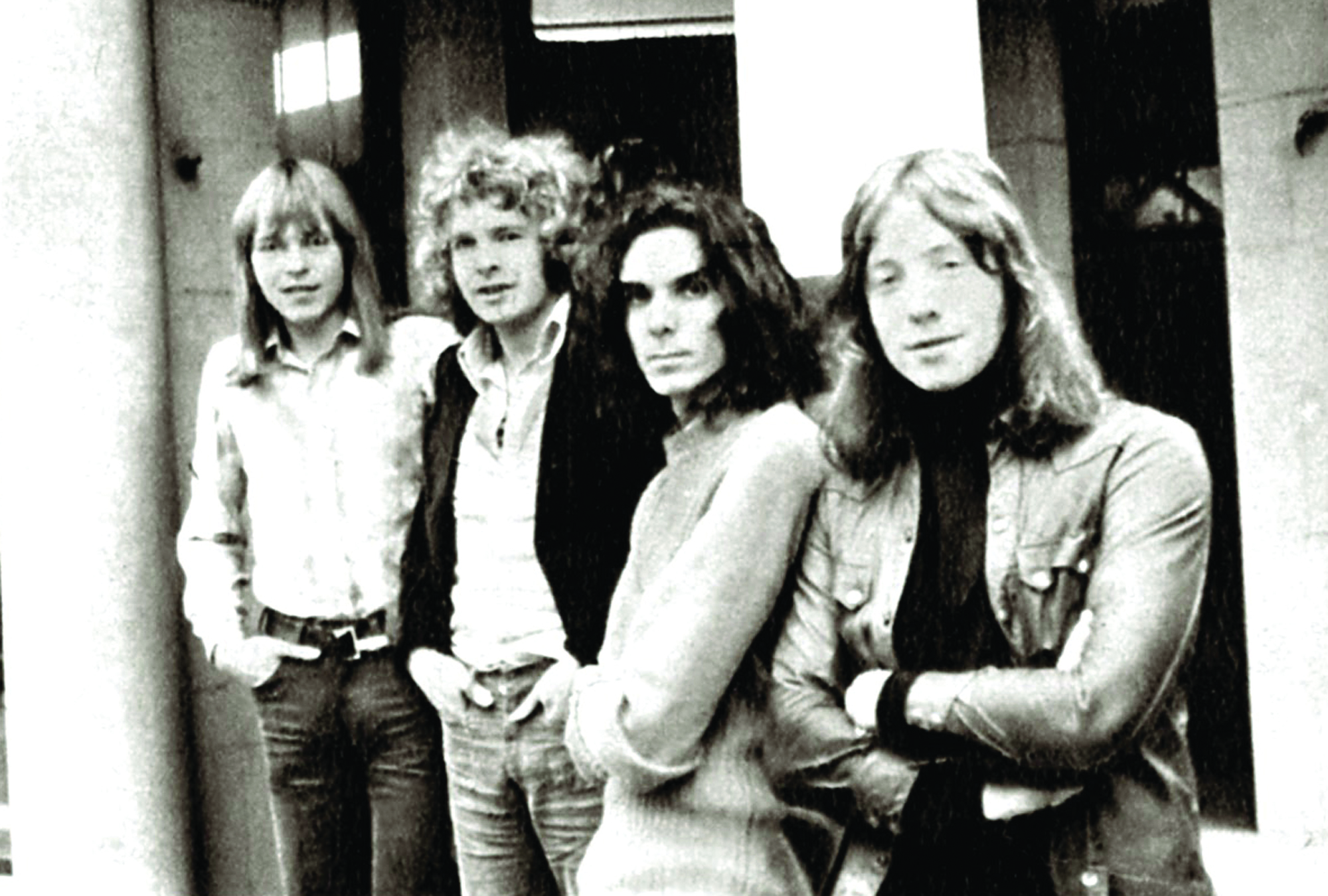
The first time Pete Trewavas met his future bandmate was on the three-hour journey to Monmouth. “Ian didn’t live too far away from me and Steve, and he picked us up in a Mercedes,” says the bassist. “It was quite an old one, but for me it was still pretty impressive. And he had on this black sheepskin jacket. That to me hinted at success.”
Mosley made a similarly favourable impression on the rest of the band. “It felt so natural on a personality basis right away,” says Fish. “The twinkle in his eye – the Clint Eastwood look. Him and I got on straight away.”
“Ian was older than the rest of us and he’d been around the block, sohe had a bit more maturity, he wasn’t a big mouth,” says Kelly. “Nothing rattled him.”
Not quite. Mosley arrived at Rockfield to find a band whose need to write an album wasn’t quite matched by the urgency of their desire to write it.
“At one point we bought a blow-up dinghy and sailed into the town down the local river,” says Trewavas. “Ian was, like, ‘What the hell are you doing? Haven’t you got an album to write?’”
Part of the problem was that Marillion had underestimated how difficult it was to write songs to a deadline. “I think we expected it to be like writing Script…,” says Fish. “I don’t think we took it as seriously as we could have. We were a bit lackadaisical.”
Part of the issue was the way they wrote. Rather than composing whole songs, they’d write fragments and pieces, then try to work out how to jigsaw them together.
“We’d stumble across ideas and not always want to join them up or commit to them,” says Trewavas. “But we were coming up with stuff. Assassing had been moved on and we were getting stuck into some of the other songs.”
Among the songs they worked on at Rockfield were Emerald Lies, the whisper-to-a-roar Jigsaw and Punch & Judy, the latter a musically and lyrically violent dissection of
a crumbling marriage. “Fish had decided Punch & Judy was going to be the first single before we’d written any music for it,” says Kelly now. “And he’d told the label.”
Another song, She Chameleon, had been kicking around for a couple of years, albeit in noticeably different musical form. Desperate for material, the band stripped away its oddly jaunty melody in favour of sepulchral atmospherics and a soporific pace. Fish’s original lyrics remained largely intact, vividly detailing an empty sexual encounter. What he had added was a memorable new line: ‘Was it just a fuck/Just another fuck, I said?’
“That came when I was hanging out with [The Teardrop Explodes frontman] Julian Cope at Friars,” says Fish. “We were both off our faces on acid, sitting in the dressing room. He was signing autographs, and these girls came up and said, ‘Can I get a kiss, Julian?’ I just started saying, ‘Was it just a fuck, just another fuck?’ And he goes, ‘That’s a great line.’ We said whoever used it first should give the other credit. I never did give him credit.”
Ironically, Fish already had a ready-made name for the record. He’d come across the word ‘fugazi’ in US war correspondent Michael Herr’s 1977 book Dispatches, a memoir of his time covering the Vietnam War, and thought it fit the bill perfectly. “It was a great title,” he says. The problem was that Marillion didn’t have a song to go with it.
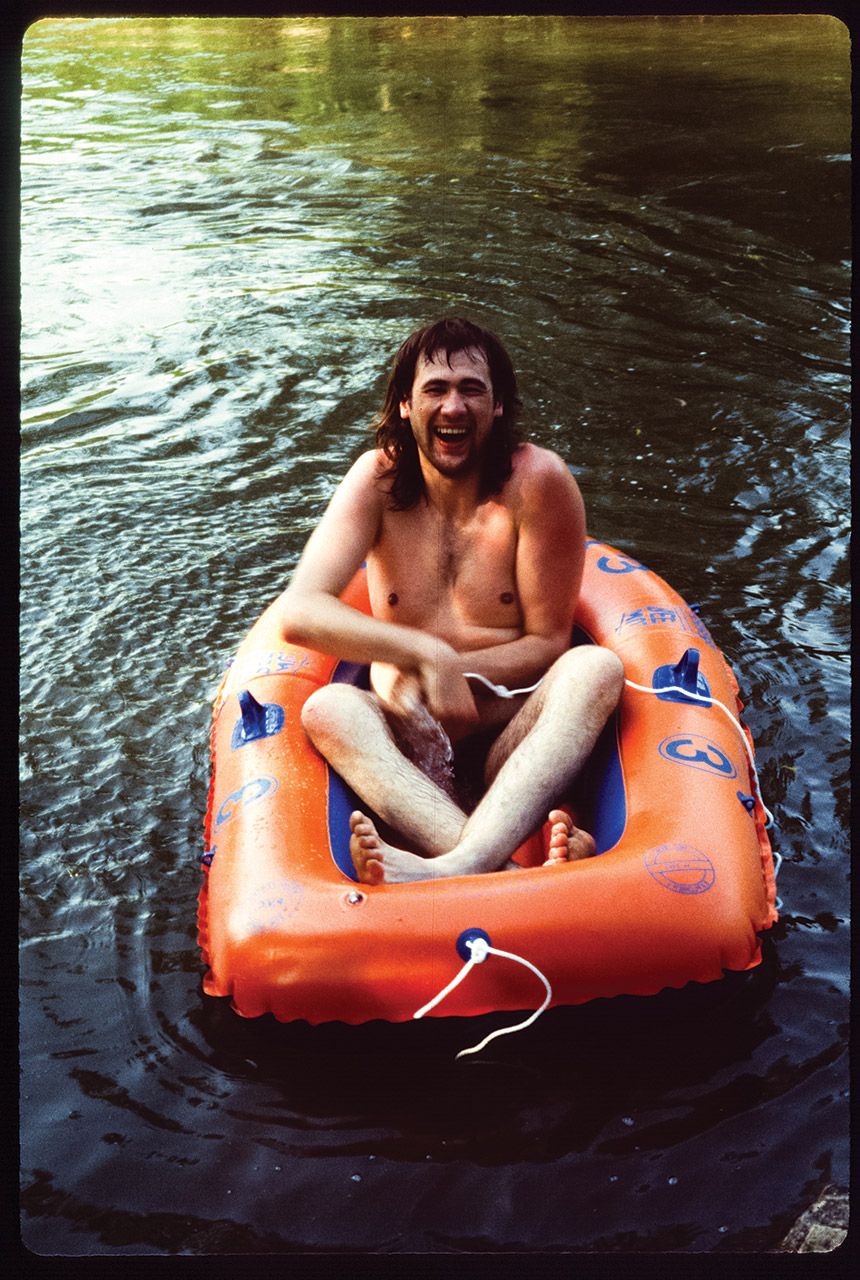
“We felt like we were under a lot of pressure to come up with an album’s worth of material,” says Mark Kelly, “and we weren’t making a very good fist of it, to be honest.”
According to Pete Trewavas, they had “a good half, maybe three-quarters” of the album written when they entered Richard Branson’s £1,000- a-day Manor Studio in Oxfordshire with producer Nick Tauber and engineer Simon Hanhart in early November 1983. The problem was that the record label had booked the album’s release date for the following March, and a tour had been arranged around it. “The machine was ready,” says Fish, drily.
There was little urgency in the air at first. Tauber spent a few days getting the drum sound right – a crucial part of the recording process. While he and Mosley tinkered, the others began revisiting the songs they had amassed so far, working on the bits they didn’t feel were strong enough. During down time, they drank and played pool. But the realisation that they were on the clock slowly began to dawn. The normally unflappable Ian Mosley, who was used to sessions running like clockwork, was scratching his head.
“I was sitting there thinking, ‘Wait a minute, we’re in this studio costing a grand a day and we haven’t written the title track of the album yet. That can’t be good,’” he says.
Marillion knew that they didn’t have enough songs in the bag to make an album, and so they began to hastily write more in the studio. They came up with two new tracks. One was the jagged, eight-minute Incubus, a song Fish claimed at the time picked up from where Script For A Jester’s Tear track The Web left off and which today reads like an unsettlingly prescient tale of revenge porn.
The other song was Fugazi itself. Fish had the title and a set of vivid, intricate lyrics written while he bounced around London from spare room to sofa. His words perfectly captured the disorientation and claustrophobia of both his own peripatetic existence and modern life in general, in exactly the same way as Radiohead did 15 years later with OK Computer.
That just left the small matter of writing some music to go with it. Inspiration for the latter came from an unlikely source. “We were watching [arthouse horror movie] Cat People, which David Bowie had done the music for,” says Ian Mosley. “Suddenly there was this pulsating part in the soundtrack, and everybody went, ‘Oh, that sounds good.’ After we watched the film, we went in the studio and just jammed around and started playing around: ‘Dum dum… dum, dum’, which was inspired by the film. That’s how the beginnings of the Fugazi track came together, musically.”
The album was coming together at a snail’s pace, yet Marillion’s capacity for dragging things out continued unabated. At one point, they decided they needed a big crashing sound on Emerald Lies. “So we spent a couple of hours smashing bottles and recording it,” says Kelly. “If you’re spending a thousand pounds a day on a studio and have an album to finish, you shouldn’t really spend an afternoon smashing bottles.”
It didn’t help that the band and Tauber had opted to record on a 48-track machine. While it was undoubtedly cutting-edge technology, each new take entailed rewinding the multiple analogue machines involved and waiting for them to sync up. "You’d waste two hours a day just waiting for everything to sync up,” says Kelly.
Nor did Tauber’s frame of mind help. “Working with Nick and Simon on that first album at the Marquee studios was probably one of the most enjoyable times I’ve ever had,” says Kelly. “But by Fugazi, I think he was having some personal trouble. The fact that he wanted to work on Christmas Day should have been a warning sign.”
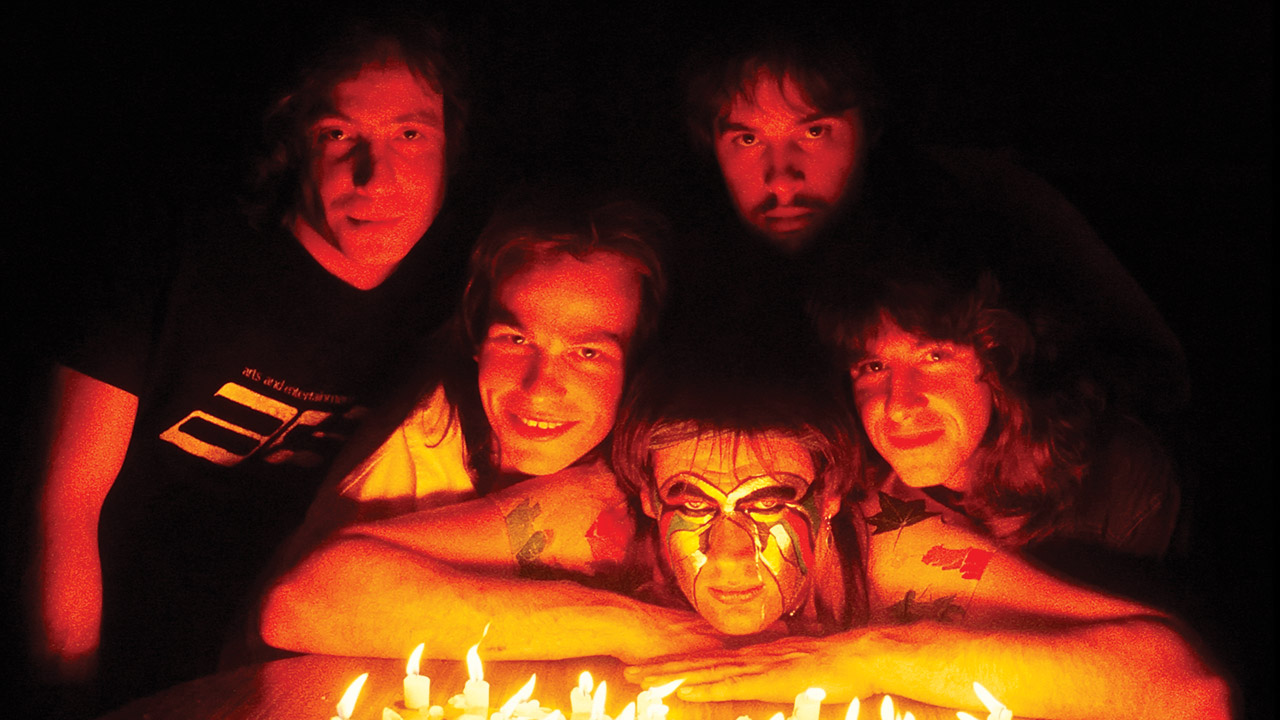
The festive season came and went and still the end was nowhere in sight. “The plan was to record it at The Manor and mix it somewhere else,” says Kelly. “Except we hadn’t finished it. So we carried on recording in the place we were supposed to be mixing it.”
With that deadline looming, the band needed to take action swiftly. They looked around for any studio where they could finish recording and complete the mixing
“Where we could get time, we could go there,” says Kelly.
Trewavas: “We went to Eel Pie Studios, which was owned by Pete Townshend. Maison Rouge…”
Fish: “Trident, Sarm East…”
Kelly: “I think we were in Wessex at one point. Then there was Odyssey, with the guy with the machete.”
Sometimes they were in two studios at once. At one point, Kelly and Rothery were in Abbey Road with Iron Maiden engineer Tony Platt, who had been drafted in to remix Incubus, while Fish, Trewavas and Mosley were in another studio with Tauber and Hanhart working on other tracks.
It was exhausting. Kelly remembers listening back to a mix of the title track with Tauber and Hanhart. “We were woken up by the sound of the tape going [makes chck-chck-chck sound of an empty tape reel spinning around]. All three of us had fallen asleep during playback because we were so tired.”
The tour in support of Fugazi began on February 11, 1984 at Leeds University as scheduled. Except Fugazi itself still hadn’t been finished – the title track was still being mixed.
“We finally heard the finished album in a studio in Liverpool, on the second or third night of the tour,” says Kelly. “We weren’t very happy, to be honest. Mainly because we didn’t have a chance to comment on the mixing: ‘Here it is, fait accompli.’ We really hated the fade-out on the song Fugazi itself.”
It was far from a disaster, despite their reservations. At its best, Fugazi was as good as Script For A Jester’s Tear. Assassing, Incubus and the title track struck the perfect balance between the intricate and the impactful. Conversely, She Chameleon is regularly held up as the album’s weak spot. “I like it,” says Fish of the latter. “But I don’t like the instrumental section – that whole fucking widdly-widdly bit. It was incongruous within the whole song.”
But Marillion hadn’t just gone to the wire with their second album, they’d taken it several steps beyond. The cost of making Fugazi came to somewhere in the region of £120,000. By contrast, Script… had cost £70,000.
“It was like going into the bar and running a tab and having a fantastic party and never for one moment thinking at the end of the night you’d be given the bill,” says Fish.
It was too late to change anything even if they wanted to. “We were just glad that we finished it and were out on the road,” says Kelly.
The physical effort and fraught nature of making the album wasn’t apparent in the live shows on the Fugazi tour. “When we took it out on the road and started playing it live, it all fell into place,” says Fish. “If you look at footage from the gigs on that tour, it’s stunning. It was punk-prog – there was so much energy, so much fire about the band.”
Mark Kelly admits that the tour showed just how far ahead of the rest of the band Ian Mosley was musically. “Ian would get the sound engineer to tape gigs, then he’d listen to them after the show,” says the keyboard player with a laugh. “The next day, he’d talk about all the things that went wrong: ‘Could you hear me last night, Mark?’ That was code for, ‘You were playing out of time.’”
The instant bonhomie that sprung up between the drummer and his new bandmates in the studio wasn’t a fluke either, even if Fish decided to put it to the test.
“There was one gig in Germany where I was wasted and I said or did something to Ian,” says the singer. “I can’t remember what, but he punched me in the solar plexus and took the wind out of me.”
“All I can remember is him saying something,” says Mosley. “I said, ‘If you do that again, I’m going to hit you.’ And he said something that rattled me, so I gave him a friendly tap in the stomach. I didn’t go for a knockout blow or anything. I think it got blown out of proportion, but it made me look tough.”
It was on that tour that Mosley was officially offered the job of Marillion’s drummer. “John Arnison came up to me at the back of the bus and said, ‘Ian, the boys want you to join permanently.’ I was earning pretty good money doing sessions and stuff, and they were all on about 50 quid a week, so I said, ‘That’s great, but I can’t really afford to do it.’ So he went down to the front of the bus and gave everyone an immediate pay rise. I was Mr Popular on that tour.”
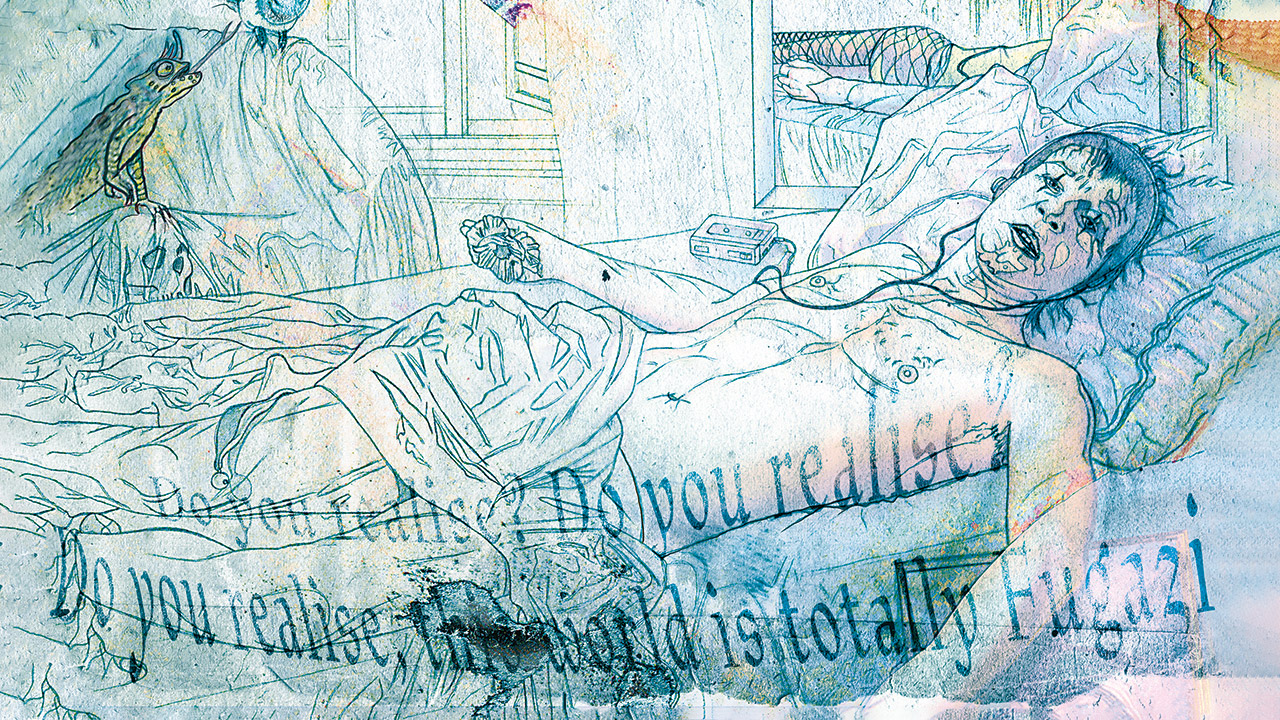
After the trials of making the album, it seemed like everything was going to plan. Fugazi peaked at No.5 in the UK Albums Chart – two places higher than Script For
A Jester’s Tear. But their paymasters at EMI saw it in a different light.
“We didn’t really break through in Europe in the way they thought we would,” says Kelly. “They were looking at the balance sheet. So while it looked like a big success in the UK, they were looking at it and going, ‘Well, it sold less than the first one.’ It didn’t really have any big singles on it either.” (Punch & Judy and Assassing, the album’s two singles, reached No.29 and No.22, whereas Garden Party had reached No.16).
Fugazi’s perceived under-performance put them on notice with EMI. It was John Arnison who hit on a way of pacifying the label and hopefully making inroads outside of the UK.
“He said, ‘Why don’t you put out a cheap live album? That’ll bring in some money and give us some breathing space,’” says Mark Kelly.
There was a tried and trusted precedent for this. Charisma had done the same with Genesis and Van der Graaf in the 70s – Genesis Live and Vital acted as samplers for people who wouldn’t have picked up the full-price studio albums.
And so, in November 1984, Marillion released the seven-track live album Real To Reel. Recorded at Leicester’s De Monfort Hall that March and at the Spectrum in the band’s Canadian stronghold of Montreal, it captured the urgency that the panicked rush of making Fugazi had wrung out of the band. Costing considerably less than £120,000 and reaching No.8 in the charts, it kept EMI’s bean counters happy. But there was more to it than just pacifying the record label.
“People underestimate the value of Real To Reel within Marillion,” says Fish. “It allowed us to take songs from Fugazi album and play them with the energy we wanted it to have. But it also broke us in Europe. If we hadn’t done what we did in Germany and Holland, I think the band would have fluttered away.”
Marillion hadn’t been handed a free pass – they knew they had to deliver a winner with their next studio album – but they did have breathing room. “With Fugazi, we learned to write music together,” says Pete Trewavas. “With [follow-up] Misplaced Childhood, we learned to write songs together.”
Thirty years on, Fugazi holds a unique place amid the four Fish-era Marillion albums. It doesn’t have the reckless energy and nostalgic pull of Script For A Jester’s Tear, the blockbusting hits and grandstanding concept of Misplaced Childhood or the going-down-in-flames romance of Clutching At Straws. It usually trails its three counterparts in ‘best of’ fan polls, something the band themselves aren’t unaware of.
“It wasn’t as successful as any of the other albums we did with Fish – it certainly didn’t sound as good as Misplaced Childhood or Clutching At Straws,” says Kelly. “But those two songs we wrote in the studio, Fugazi and Incubus, they’re up there with
the best of the material that we did with Fish.”
“It’s an angsty album – it’s kind of like jagged, broken glass,” says Trewavas. “It’s not a perfect record, but then I didn’t think any of them were. And a lot of those songs worked well live – they stayed in the live repertoire for quite a while.”
“It’s a transitional album,” says Fish. “It’s an album we needed to make to get to Misplaced Childhood. It could have been stronger in places or sounded better, and maybe it didn’t sell as many as the label wanted. But we were young guys, for fuck’s sake. You don’t think about that kind of shit. You just think, ‘This is fucking fantastic, we’re making albums and travelling the world, this is the life.’”
This article originally appeared in issue 123 of Prog Magazine.
Dave Everley has been writing about and occasionally humming along to music since the early 90s. During that time, he has been Deputy Editor on Kerrang! and Classic Rock, Associate Editor on Q magazine and staff writer/tea boy on Raw, not necessarily in that order. He has written for Metal Hammer, Louder, Prog, the Observer, Select, Mojo, the Evening Standard and the totally legendary Ultrakill. He is still waiting for Billy Gibbons to send him a bottle of hot sauce he was promised several years ago.

